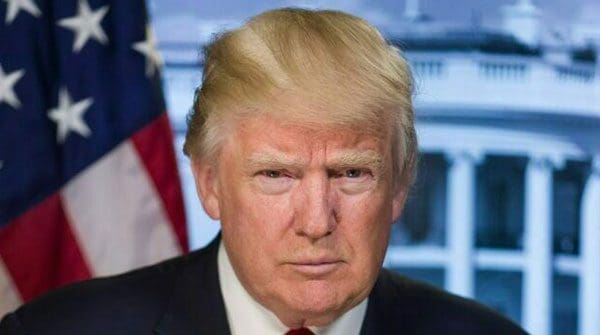 Today, people are lining up to cast their ballots for either Hillary Clinton or Donald Trump.
Today, people are lining up to cast their ballots for either Hillary Clinton or Donald Trump.
For many Americans (and non-Americans), there will be a great sense of relief to know that the election is finally over, and some hope that things return to normal.
I wouldn’t count on the latter.
The aftermath of Clinton-Trump 2016 has yet to be written. This great republic is more politically polarized than at any time in recent history. Americans have expressed their frustration with big government, high taxes, economic woes, Obamacare, immigration levels and foreign policy measures.
As University at Buffalo SUNY political science professor James Campbell wrote in a June 30 op-ed for the Los Angeles Times, “Americans are highly polarized and have grown more so. We may blame politicians, big donors, activists or the ideological media for this – but they are just intermediaries. They are not the source of polarization. We are.”
The working class shift to GOP is tangible by Joseph Micallef
Campbell studied polling data from five sources – American National Election Studies, General Social Survey, Gallup, CBS/New York Times surveys and national exit polls – and found just how much the political divide has grown.
“About half of the public had chosen a side as a liberal or a conservative by 1972,” he wrote, “and half considered themselves moderates (or were unaware of their ideology) – so the nation already was somewhat polarized.” Yet, “[b]y 2015, the split was 56 percent to 44 percent, with liberals and conservatives combining to outnumber moderates.”
That’s an enormous ideological shift. It means that more Americans have a black-and-white view of the world they live in, are more willing to choose sides in a political debate, and are more likely to use strong language and rhetoric to make their points.
Hence, the (somewhat) friendlier atmosphere that previously existed in U.S. politics has found a permanent home in the dustbin of history. In its place, ideological rigid politicians on the political left and right engage in territorial fights. Bipartisanship is exceedingly rare, and 24/7 campaigning, strategic communications and public relations are a must.
Some people believe that it’s just a temporary phase, and it will eventually disappear. It won’t. You can’t turn back the hands of time, and you have to deal with this new style of politics – and the new realities that it has created, and will continue to create.
The new president won’t be able to unite the country, either. Clinton and Trump are highly unpopular major party candidates. Their ideological opponents don’t trust them and, quite frankly, will never trust them.
That being said, there are ways for the next president to adapt to the current political environment.
For example, he/she would need to appoint a few cabinet members across party lines. But while the historical impulse has been to link with political moderates, a better move would be to try to include some individuals with strong ideological views.
Yes, it would take a massive effort. A great deal of political leeway would have to be granted, too. But, if successful, there would be Republicans and Democrats in cabinet positions who could remain independent, and still work for the greater good of the entire U.S. political process.
Meanwhile, the new president should meet with his/her opponents to identify mutually acceptable pieces of legislation.
Recent congressional sessions have been anything but pleasant between the two major parties. Even if they can’t work on bipartisan legislation as easily as before, they need to find issues involving tax cuts, new government programs and military matters where there is some agreement.
It’s going to be a long, difficult four years in office for President Clinton or President Trump. For the people of the U.S., it could feel like several lifetimes.
Michael Taube, a Troy Media syndicated columnist and Washington Times contributor, was a speechwriter for former prime minister Stephen Harper. He holds a master’s degree in comparative politics from the London School of Economics.
The views, opinions and positions expressed by columnists and contributors are the author’s alone. They do not inherently or expressly reflect the views, opinions and/or positions of our publication.


